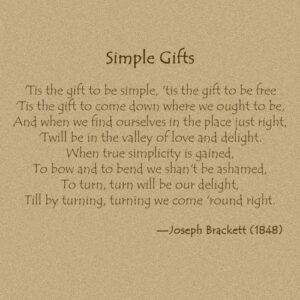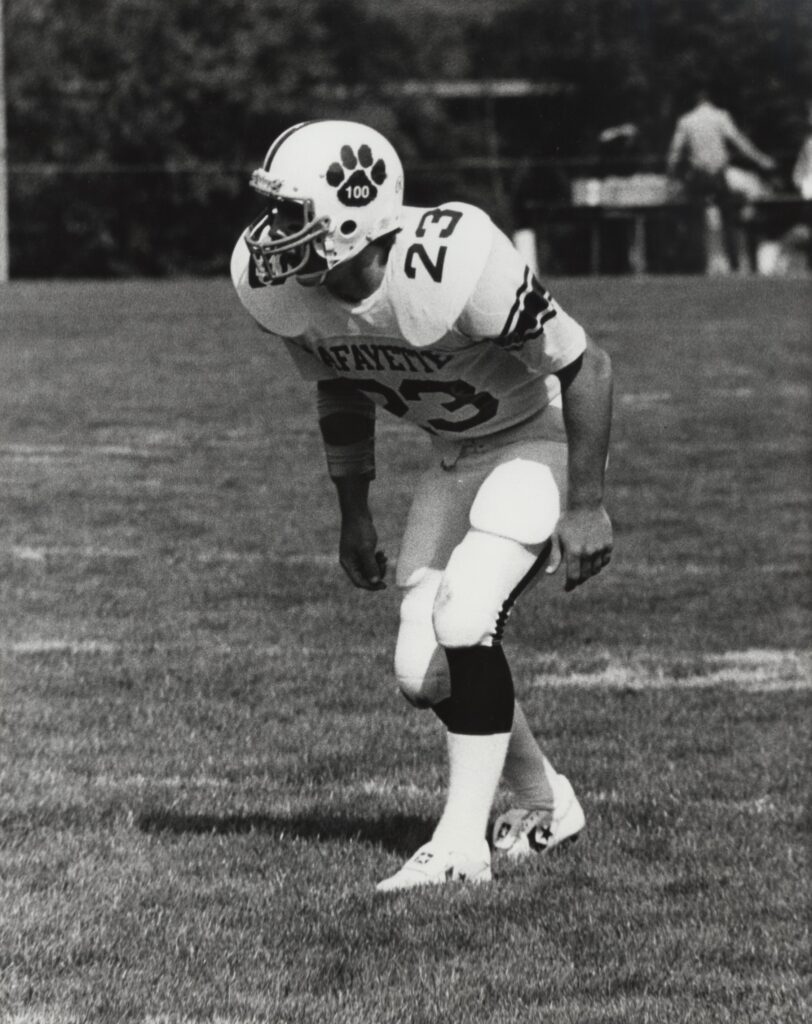 I had a great customer service experience recently and when I complimented the woman who provided it, she replied “We endeavor to be simple.” This restaurant had a simple and clear process to engage me and the service I needed. We all prefer simplicity and clarity, not clutter and confusion. In this world of COVID restrictions of low touch, and in many cases, lack of appropriate staff, complications seem inevitable resulting in frustrated customers. Easier, simpler, and clearer drives greater loyalty and success. Even her statement was short, simple, to the point, yet so powerful.
I had a great customer service experience recently and when I complimented the woman who provided it, she replied “We endeavor to be simple.” This restaurant had a simple and clear process to engage me and the service I needed. We all prefer simplicity and clarity, not clutter and confusion. In this world of COVID restrictions of low touch, and in many cases, lack of appropriate staff, complications seem inevitable resulting in frustrated customers. Easier, simpler, and clearer drives greater loyalty and success. Even her statement was short, simple, to the point, yet so powerful.
“Everything should be as simple as possible, but no simpler” is a compressed version of a 1933 lecture by Albert Einstein. He stated: “It can scarcely be denied that the supreme goal of all theory is to make the irreducible basic elements as simple and as few as possible without having to surrender the adequate representation of a single datum of experience.” In other words, “Everything should be made as simple as possible, but no simpler.”
This is a great quote coming from the world of science. Considering that it is cited over 1 million times on the web according to Google, many people resonate with it. Simplicity in expression makes the concept or message available to the greater number of people. After all, it was Einstein who simplified physics into relativity, ‘e=mc2’ is a simple formula. Einstein also famously said, “Out of clutter, find simplicity. From discord, find harmony. In the middle of difficulty lies opportunity.”
We need to do our best to keep things simple. Simplify, then simplify again. I currently live in a house that has 30+ years of living experiences within it, created by 6 individuals, 4 of whom no longer live there – that is a lot of opportunity to simplify. Simplicity creates margin. It can declutter the mind, create openness and space.
opportunity to simplify. Simplicity creates margin. It can declutter the mind, create openness and space.
While I was a High School Football Coach, I leveraged some of my former coaches and teammates to get their college level schemes for both special teams and secondary coverages. My challenge was to simplify these college level concepts such that high school players could understand and execute. We had success with these concepts by making them simple. This fit with a great quote from 4-time Super Bowl winning Coach Chuck Knoll, “Champions are champions not because they do anything extraordinary but because they do the ordinary things better than anyone else.”
It is said that a hero accomplishes extraordinary results in the simple service of others. Performing a simple act of kindness, no matter how small, can create a burst of positive energy that can profoundly change a life. A modest action that makes a difference, creates a ripple effect like a pebble thrown in a pond. In business leadership the respectful act of genuinely asking employees how they are doing, then emphatically listening to their replies, demonstrates that we care about them as people and not just resources to accomplish our company’s drive for profits.
 Laura Ingalls Wilder said, “I am beginning to learn that it is the sweet, simple things of life which are the real ones after all.” My local country station does a Thursday morning simple pleasures feature. Each week listeners share their simple pleasures. Many of the beautiful and memorable moments in my life include simple ones – drinking a cup of hot coffee on a quiet morning watching a sunrise; looking up at the night sky and seeing stars, passing satellites, and if conditions are right, the Milky Way; hearing the laughter of a child, the hoot of a distant owl, or the sound of a breeze rustling through the trees; listening to a song that inspires me or touches my heart; feeling the joy of doing the right thing and making a difference; crawling into bed right next to the love of life.
Laura Ingalls Wilder said, “I am beginning to learn that it is the sweet, simple things of life which are the real ones after all.” My local country station does a Thursday morning simple pleasures feature. Each week listeners share their simple pleasures. Many of the beautiful and memorable moments in my life include simple ones – drinking a cup of hot coffee on a quiet morning watching a sunrise; looking up at the night sky and seeing stars, passing satellites, and if conditions are right, the Milky Way; hearing the laughter of a child, the hoot of a distant owl, or the sound of a breeze rustling through the trees; listening to a song that inspires me or touches my heart; feeling the joy of doing the right thing and making a difference; crawling into bed right next to the love of life.
I have been told that a strength of my blogs is that they break down complex concepts into simple thoughts. I profess and strive to be a simple man. William Arthur Ward, an American motivational writer, stated that “Each of us will one day be judged by our standard of life, not by our standard of living; by our measure of giving, not by our measure of wealth; by our simple goodness, not by our seeming greatness.”
“Simple Gifts” is a Shaker song written and composed in 1848, generally attributed to Elder Joseph Brackett. The song was largely unknown outside Shaker communities until Aaron Copland used its melody in Martha Graham’s ballet, Appalachian Spring, first performed in 1944. It gained mainstream recognition when Judy Collins included the song on her 1970 album, Whales & Nightingales. Plus, R.E.M. used this song to open their song, “I Believe”, during their 1987 tour. “’Tis the gift to be simple, ’tis the gift to be free,” wrote Brackett. Satisfaction was not attained through the acquisition of power or wealth. Instead, it was attained through humility and freedom from worldly goods.
song was largely unknown outside Shaker communities until Aaron Copland used its melody in Martha Graham’s ballet, Appalachian Spring, first performed in 1944. It gained mainstream recognition when Judy Collins included the song on her 1970 album, Whales & Nightingales. Plus, R.E.M. used this song to open their song, “I Believe”, during their 1987 tour. “’Tis the gift to be simple, ’tis the gift to be free,” wrote Brackett. Satisfaction was not attained through the acquisition of power or wealth. Instead, it was attained through humility and freedom from worldly goods.
Brother Curtis Almquist of the Society of St. John the Evangelist in Boston observes: “Each moment, each breath, holds the possibility of the life we most desire. The conversation you are now having is the most important thing. The cup of tea you are now cuddling is the most important thing. The walk you are walking is the most important thing. If you are washing the dishes, wash the dishes in such a way that you are really there, and the dishwashing, for the moment, is all you need. Happiness is to be found not when you finally rid yourself of the chore of the dishes, but actually in the extraordinary moment that the dishwashing invites. Breathe your way into the awareness of the sacrament of the present moment. Here and now is where God is to be found.”
 God’s path is simple to hear, however the pressures of man’s world make it challenging to execute. Jesus simplified the 613 commandments in Mosaic Law down to two – first: “Love the Lord your God with all your heart and with all your soul and with all your mind and with all your strength;” Second: “Love your neighbor as yourself.” He added that “there is no commandment greater than these” and “all the Law and the Prophets hang on these two commandments.” This is captured in all three synoptic Gospels Mark (12:30-31), Matthew (22:36-40), and Luke (10:27).
God’s path is simple to hear, however the pressures of man’s world make it challenging to execute. Jesus simplified the 613 commandments in Mosaic Law down to two – first: “Love the Lord your God with all your heart and with all your soul and with all your mind and with all your strength;” Second: “Love your neighbor as yourself.” He added that “there is no commandment greater than these” and “all the Law and the Prophets hang on these two commandments.” This is captured in all three synoptic Gospels Mark (12:30-31), Matthew (22:36-40), and Luke (10:27).
The complexity we face daily can be made easier, simpler, and clearer. The solution is endeavoring for the simple pleasure of uncomplicated love; love without strings attached; love offered freely. An extraordinary result accomplished because of doing an ordinary thing – serving others, here and now. It is love, it is where God is to be found, it really is the simplest idea.




